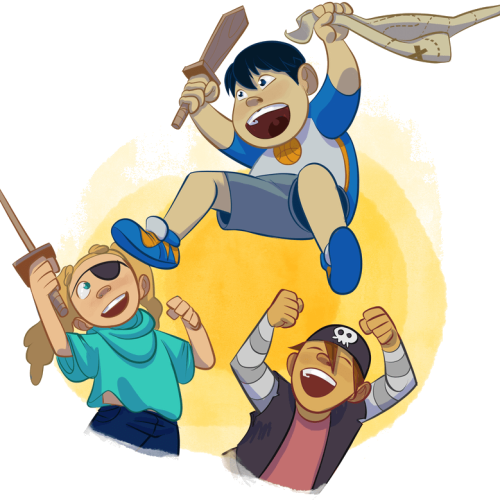The Official Joy Berry Website
Helping Kids Help Themselves
become responsible, happy, and successful
Menu
Menu
LIVING SKILLS SUBJECTS AND EDUCATIONAL GOALS FOR AGES 7 - 9
Kids are often ill equipped to assume the responsibilities that are required of them. Failure to perform adequately creates frustrations and disappointments for kids and the people around them.
The purpose of Living Skills for ages 7 – 9 is to teach kids the information and skills they need to live intelligently and responsibly. This is accomplished by teaching kids the personal skills they need to take care of themselves, the social skills they need to develop and maintain positive relationships, and the coping skills they need to relate to things in positive rather than negative ways.
It is recommended that parents enhance their kids’ natural development and growth by teaching them age-appropriate Living Skills that can help them become responsible.
Here are the LIVING SKILLS SUBJECTS AND EDUCATIONAL GOALS for AGES 7 – 9 presented in developmental categories and sequencing.
PERSONAL SKILLS – LEVEL ONE
HUMAN SIMILARITIES – Educational goals should be to explain the ways in which every person is like other people and encourage kids to find comfort in the similarities.
HUMAN UNIQUENESS – Educational goals should be to explain the ways in which every person is unique and encourage kids to value and accept their uniqueness.
HUMAN SEXUALITY – Educational goals should be to compare sexual identity with sexual roles and encourage kids to exploit their full potential regardless of their sexual identities.
HEALTH AND NUTRITION – Educational goals should be to explain the importance of, and guidelines for, good nutrition, exercise, cleanliness, and rest and encourage kids to take care of their bodies.
EMOTIONS – Educational goals should be to explain how feelings can influence a person positively or negatively and encourage kids to handle their feelings appropriately.
PERSONAL SKILLS - LEVEL TWO
THINKING AND LEARNING – Educational goals should be to teach the intellectual skills that can help kids become lifelong learners.
PREJUDICE AND DISCRIMINATION – Educational goals should be to explain the harmful effects of prejudice and discrimination and teach kids how to form opinions intelligently.
RIGHTS AND RESPONSIBILITIES – Educational goals should be to define the personal rights to which all humans are entitled and explain the responsibilities that go along with personal rights.
DECISIONS AND PROBLEMS – Educational goals should be to teach how to make intelligent decisions and how to resolve problems in positive ways.
PERSONAL GOALS – Educational goals should be to teach kids how to establish and attain their personal goals.
SOCIAL SKILLS – LEVEL ONE
PARENT/CHILD RELATIONSHIPS – Educational goals should be to explain the challenges of being a parent and encourage kids to respect and appreciate their parents.
SIBLING RELATIONSHIPS – Educational goals should be to explain sibling rivalry and teach kids how to get along with their brothers and sisters.
FAMILY RULES AND RESPONSIBILITIES – Educational goals should be to encourage kids to help establish and maintain the family rules and regulations.
FAMILY ARGUMENTS – Educational goals should be to explain the causes of family arguments and teach how to handle them in positive ways.
FAMILY LAW – Educational goals should be to explain the legal rights and responsibilities of parents and their kids.
SOCIAL SKILLS – LEVEL TWO
MANNERS – Educational goals should be to explain why good manners are important and teach kids how to behave graciously in the various situations they encounter.
COMMUNICATION – Educational goals should be to explain the various ways people communicate and teach kids how to communicate honestly, accurately, and effectively.
DISAGREEMENTS – Educational goals should be to explain how conflicts develop and teach kids positive ways to resolve them.
FRIENDSHIPS – Educational goals should be to explain why friends are important and teach kids how to develop and maintain friendships.
PEER GROUPS – Educational goals should be to define what constitutes a positive peer group and encourage kids to choose their peers wisely.
COPING SKILLS – LEVEL ONE
NIGHTMARES – Educational goals should be to teach kids about good and bad dreams and explain how to handle nightmares.
ILLNESS – Educational goals should be to teach how to prevent illness and what kids can do to help facilitate their recovery when they are sick.
DANGER – Educational goals should be to teach kids how to protect themselves from dangerous people, objects, places, and situations.
TRAUMA – Educational goals should be to define trauma and its causes and teach kids how to handle it in constructive ways.
TIME MANAGEMENT – Educational goals should be to teach kids how to organize their time in order to accomplish the things they need and want to do.
COPING SKILLS – LEVEL TWO
MONEY MANAGEMENT – Educational goals should be to provide a variety of ways kids can earn money and teach them how to handle money appropriately.
CONSUMERISM – Educational goals should be to teach kids how to be intelligent consumers.
SCHOOL LAW – Educational goals should be to explain the laws that relate to kids while they are at school.
COMMUNITY LAW – Educational goals should be to explain the laws that relate to the communities in which kids live.
THE JUVENILE JUSTICE SYSTEM – Educational goals should be to explain how the juvenile justice system works.
Menu
Copyright © 2024 Joy Berry Enterprises. All Rights Reserved.


